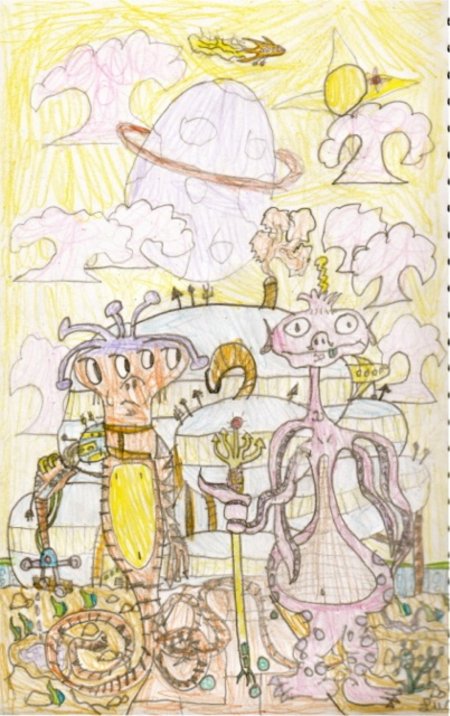Posts Tagged ‘arts’
Is Mean Really What It Takes?
I’m a Gleek, a fan of the television show Glee. It first aired in 2009 and although I fell off as a spectator last year, I’ve picked up the habit again for Season 4.
Britney 2.0, the most recent episode, aired last Thursday. Incorporating music by Britney Spears, for the second time in the show’s history, and tracing the development of a key character, the episode also alluded to the real life trauma, the very real events in the public roller coaster ride of Ms. Spears’s celebrity existence.
But that’s not what I want to talk about.
Another story line this year follows Rachel who has moved to New York to attend a prestigious performing arts academy in the Big Apple.
Rachel’s dance teacher is Cassandra July, played brilliantly by actor Kate Hudson. With a predictable coulda-been-a-star background, Cassandra’s teaching style is abrasive and vindictive. To move the plot along, as you might expect, her scapegoat is Rachel, the young woman from the small town with the big dreams of making it on Broadway.
At one point in the Britney 2.0 episode, Cassandra says, “I pick on my students because I want them to be ready for that.” That being the difficult and rejection-filled life of being a musical theatre professional.
The show reflects the mindset that what doesn’t break you makes you stronger. I find this sentiment abhorrent.
Why?
Because it justifies meanness. It rationalizes the abuse of power. It embodies a stereotype of the cruel authority figure whose behaviour is sanctioned as being for one’s own good.
There may be individuals who thrive under such a system and there are those who are motivated by an I’ll-show-’em bravado. Most of us, I conjecture, wilt if we’re starved of encouragement and trampled under the weight of another person’s ego.
Many of us likely carry such hurts already.
Being mean is not the same as being constructive. Being mean is often destructive. And there can be nothing worse than when that meanness comes from those whom we admire whether our parents, our siblings, our family members, our friends, our colleagues, our coaches, our mentors, or our teachers.
Education is not coercion nor compulsion. Learning does not come about when you harp on weaknesses or failures or transgressions.
While I obviously cannot say how the season of Glee will unfold, I’ve watched enough American television and enough American films to predict that at some point Rachel will thank Cassandra July for challenging her, for being so mean.
Rachel will acknowledge that Cassandra made her dig deep, overcome crushing criticism — if not outright belittlement– and helped her take those crucial steps along that yellow brick road to making her dreams come true.
This portrayal perpetuates a stereotype of what it takes to be successful, but even more damaging in my mind is the stereotype it perpetuates of the tough-love teacher.
And that’s a stereotype it’s time for us to break even if it’s only on television.
The Arts In Education – For A Better World
What a relief! Mark Mercer’s article in this morning’s newspaper reiterated that “universities are about education, about learning for the sake of learning” and that “university done rightly is great preparation for life”.
This was a welcome contrast to Margaret Wente’s recent diatribe against the Occupy protesters. With a swipe of her pen, she denigrates the value of the humanities. She seemingly fails to recognize that there are likely as many mechanical engineers out of work today as there are sociology students trying to find their way in life.
The business challenges we face and the deficiency in employment opportunities for young adults is not due to the educations they pursue; rather it reflects the reality of the structural weaknesses and flaws in our economies and societies.
And while we struggle to address these serious questions, as educators we need to ensure that we don’t lose sight of the value of the humanities in education and the value of the arts in our students lives.
 When I walk down the hallways at my son’s school, I’m always struck by the amazing artwork the students produce: artwork directly related to the curriculum, the topics they are studying, and their learning. A lot does get done and I think that a lot more needs to be done to without imposing a further burden of delivery on teachers.
When I walk down the hallways at my son’s school, I’m always struck by the amazing artwork the students produce: artwork directly related to the curriculum, the topics they are studying, and their learning. A lot does get done and I think that a lot more needs to be done to without imposing a further burden of delivery on teachers.
What if in-residence programs were implemented? For example, what if a published author served as writer-in-residence for the district? We have great visual artists on the North Shore — why can’t we look at having them conduct classes or organize field trips to their home studios throughout the year? Why can’t a professional dancer come in on an extended basis, once a week, to help choreograph a holiday show? Could we organize visits to Sinfonia’s (the North Shore’s professional orchestra) rehearsals? Why isn’t it automatically on the calendar every September and October for classes to take in sessions offered during the Vancouver International Writers Festival or Vancouver International Film Festival?
Some schools may be pursuing these sorts of projects and some schools aren’t. These type of initiatives, in my mind, would compliment teachers’ efforts and would be most viable in conjunction with greater support for specialist teachers (music, art, drama, dance, etc.) already hard at work. I also see that such programs would be most economically effective if delivered on a resource-sharing model between the district, the schools, and the Parent Advisory Councils (PACs).
I’m not advocating a specific approach or model because I don’t have all the information necessary to say which one will work the best. What I do know is that there is room to do more, much more. And we must do more because the arts, to me, are integral to the human experience and our children’s learning will be enhanced if art is more fully-integrated in their daily routines as a central component rather than as simply an adjunct.
I agree with Martha C. Nussbaum who writes in her 2010 book Not For Profit – Why Democracy Needs the Humanities:
“If we do not insist on the crucial importance of the humanities and the arts, they will drop away, because they do not make money. They only do what is much more precious than that, make a world that is worth living in, people who are able to see other human beings as full people, with thoughts and feelings of their own that deserve respect and empathy, and nations that are able to overcome fear and suspicion in favor of sympathetic and reasoned debate.”
I think there’s room to dispute her contention that the arts do not make money (look at this recent article by John Doyle on the profits made by private television broadcasters), but the point is that there is inherent value in the arts and humanities which we risk losing in a world solely focused on measurable utility and on money.
And isn’t that the ultimate purpose of education, as Nussbaum says, to “make a world that is worth living in, people who are able to see other human beings as full people”?
So let’s do that. Let’s make sure that our curricula do not sacrifice the arts. Let’s not make this a lesser world, but a better one.
